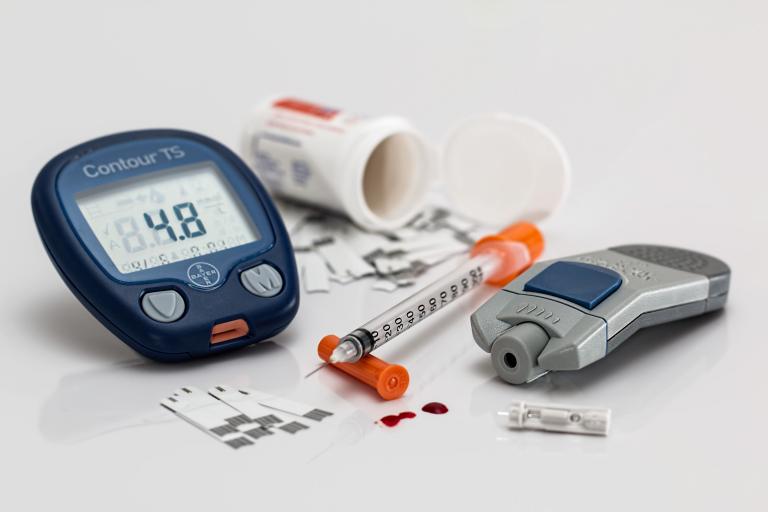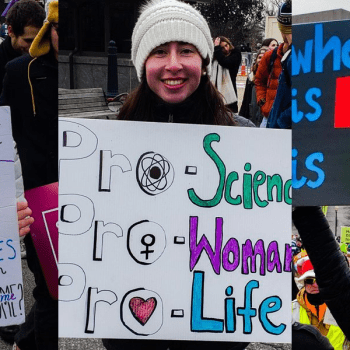 I’ve seen a few recent stories about rationing of insulin by diabetics. This worries me as that could have very serious consequences. I hope to analyze it using Catholic Social Teaching.
I’ve seen a few recent stories about rationing of insulin by diabetics. This worries me as that could have very serious consequences. I hope to analyze it using Catholic Social Teaching.
NPR reported on a death from this.
Diabetic ketoacidosis is a terrible way to die. It’s what happens when you don’t have enough insulin. Your blood sugar gets so high that your blood becomes highly acidic, your cells dehydrate, and your body stops functioning.
Diabetic ketoacidosis is how Nicole Smith-Holt lost her son. Three days before his payday. Because he couldn’t afford his insulin.
“It shouldn’t have happened,” Smith-Holt says looking at her son’s death certificate on her dining room table in Richfield, Minn. “That cause of death of diabetic ketoacidosis should have never happened.”
The price of insulin in the U.S. has more than doubled since 2012. That has put the life-saving hormone out of reach for some people with diabetes, like Smith-Holt’s son Alec Raeshawn Smith. It has left others scrambling for solutions to afford the one thing they need to live. I’m one of those scrambling.
It has doubled since 2012! And, that was only the end of the price spike as the New York Times reported:
Between 2002 and 2013, the price of insulin jumped, with the typical cost for patients increasing from about $40 a vial to $130.
So overall since 2002, we are looking at price increases where Insulin now costs 4 to 6 times more than it did then.
Insulin Pricing
This seems contrary to two general laws of drug pricing: generally, drugs become easier to manufacture which drops the price a bit, and once drugs reach a certain age the patent expires and prices drop dramatically as generics enter the market. The patents on drugs run out after 20 years: so with human Insulin being developed in 1978, the dramatic price drop should have been in the late 90s. However, the manufacturers have made incremental changes that are patented so the insulin today is not the same as it was in the 90s. Recently Yale reported that the new versions of insulin (analogs) don’t seem to give significantly better results than ordinary human insulin first synthesized in 1978 (and thus out of patent). This begs the question as to why no company commercially produces the insulin discovered in 1978 which would be cheaper.
And underdosing is a serious problem. Different Yale investigators asked 199 people prescribed insulin and 51% had reduced dosing in some way due to cost. Thus, this is not an isolated problem, but common in diabetics.
Catholic Analysis of Insulin Prices
This is a tricky situation for Catholic social teaching. Before analyzing it, let’s go to principles.
Principles Regarding Drug Prices
Here are a few points to consider:
- There is a right to access to basic health care. This right depends on the principle of solidarity so comes from the community such as a city, state or country, not worldwide. Insulin would seem to be included in such care in developed nations. (Obviously, if a community struggles to feed people, insulin may not be an option.)
- People and companies have the right to make a profit from their inventions: the reasonable protection of intellectual property rights by copyrights and patents encourages inventors and scientists. We also have a proper right to the fruit of our work and the fruit of a scientist’s work might be better insulin. Having a patent for 20 years seems like a reasonable way to allow them to profit from this without making it impossible for anyone else ever to make that product.
- Insulin was first synthesized from livestock which was OK but the development of human worked much better. According to an article on the history of insulin, most developments since then are minor and, as noted above, don’t seem to work notably better.
- Medicaid fully covers insulin, but it is the lower classes of working people who have limited insurance or income to afford it.
Options for Cheaper Insulin
Analyzing these points, it would seem that several logical possibilities present themselves.
- Change insurance so that such people are covered. There are dozens of different ways this could be done. Evidently, some of this money would end up coming from taxpayers or others in an insurance pool.
- Expand Medicare for diabetics. We usually think of Medicare as something for the elderly but, according to the government’s own statistics, 16% of those on Medicare (or 8.8 million Americans) are under 65, but disabled. Currently, you need to qualify for Social Security disability (or be close to death in a few conditions) to qualify for Medicare under 65. This could be expanded to people with life-long medical conditions (like diabetes) that cost a lot to treat. (Some would argue Medicaid for all which would simply expand this point to all people.)
- Control prices: price controls on health care products are hard to effectively do in the USA. Just look back at the situation of Epi-pen which did seem like price gouging.
- Encourage the production of generic insulin so that people who are tight for money can afford it.
I am not an expert in healthcare economics and really don’t know which of the solutions is best. I’m sure some jump to one conclusion or another, I suspect some combination of them would work best. The current situation seems unacceptable. Hopefully, we can do something to help diabetics afford the insulin they need.












